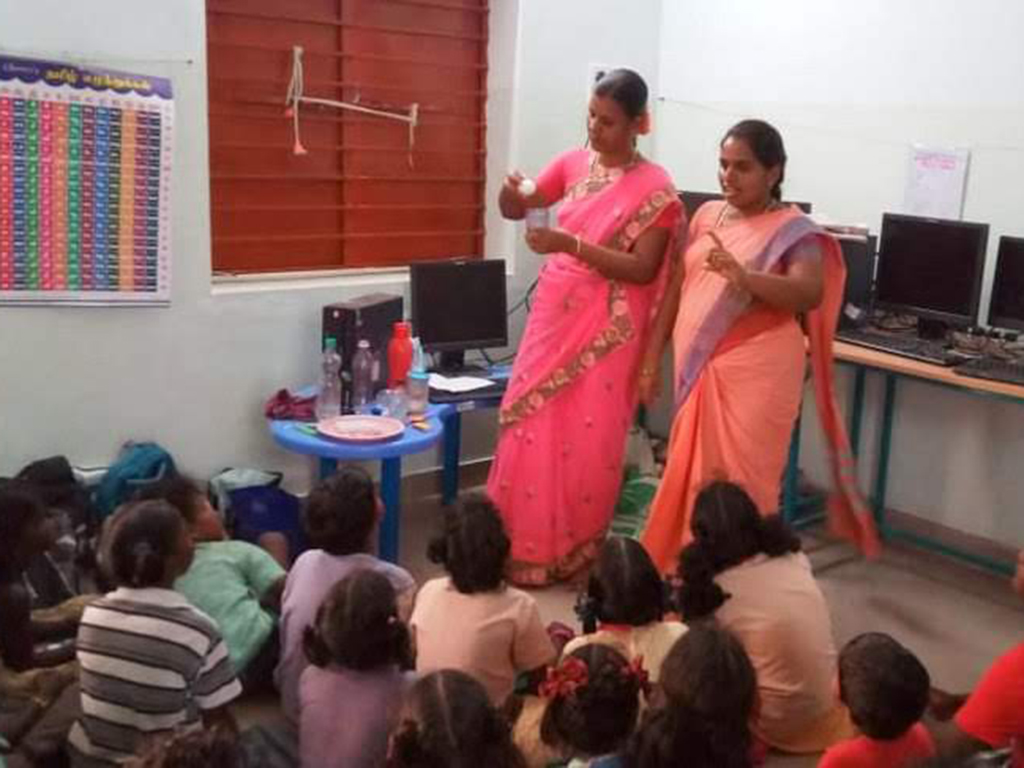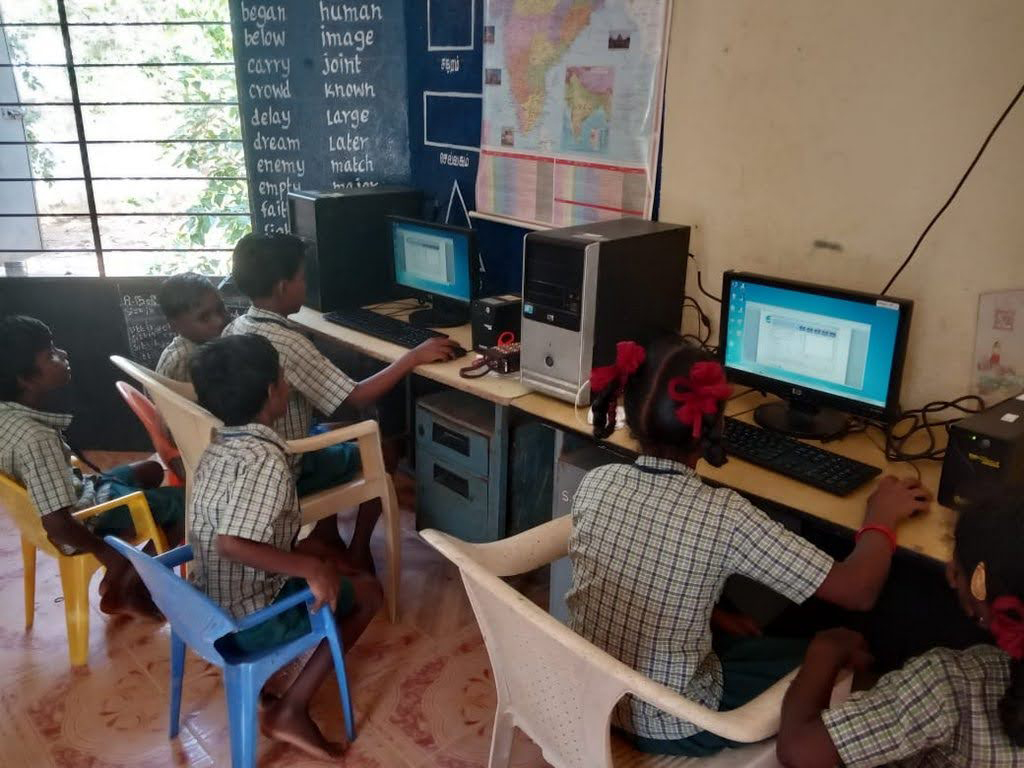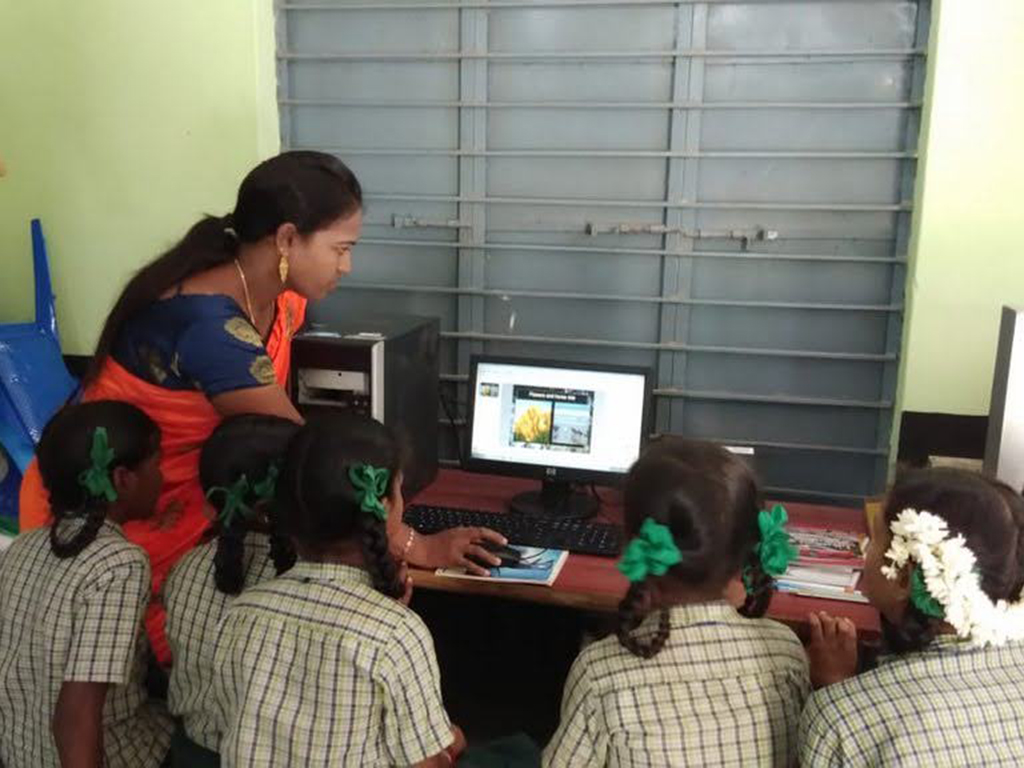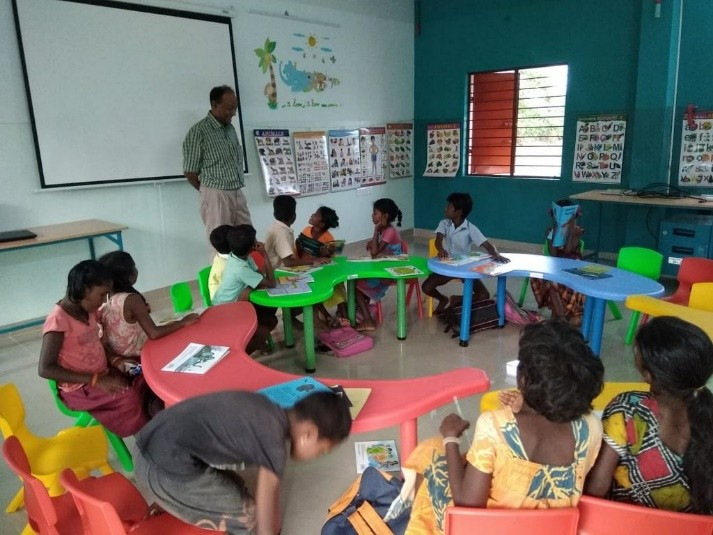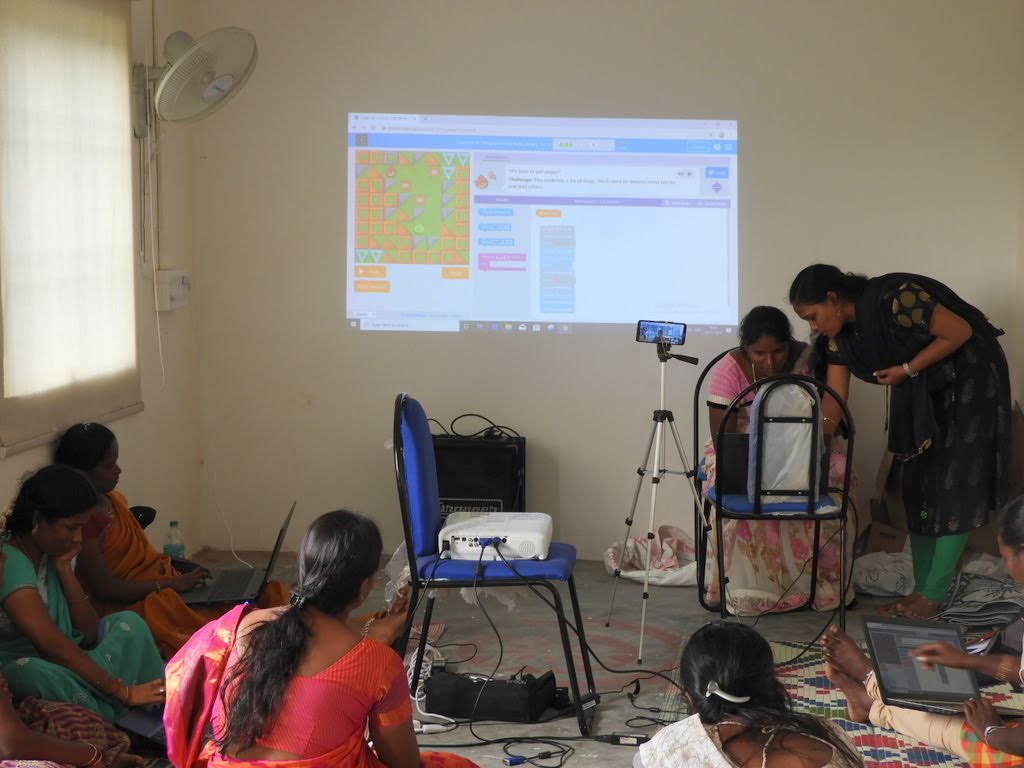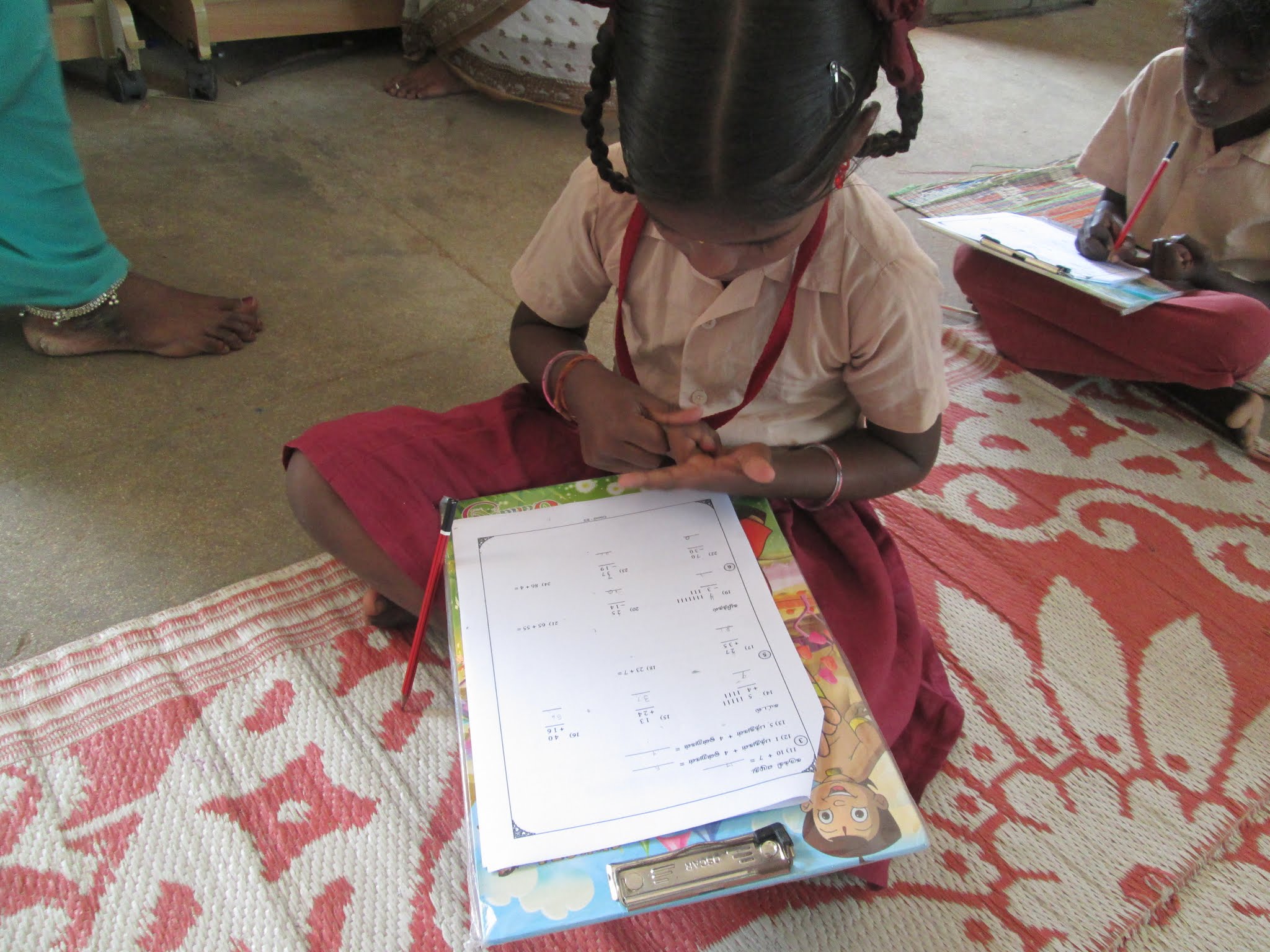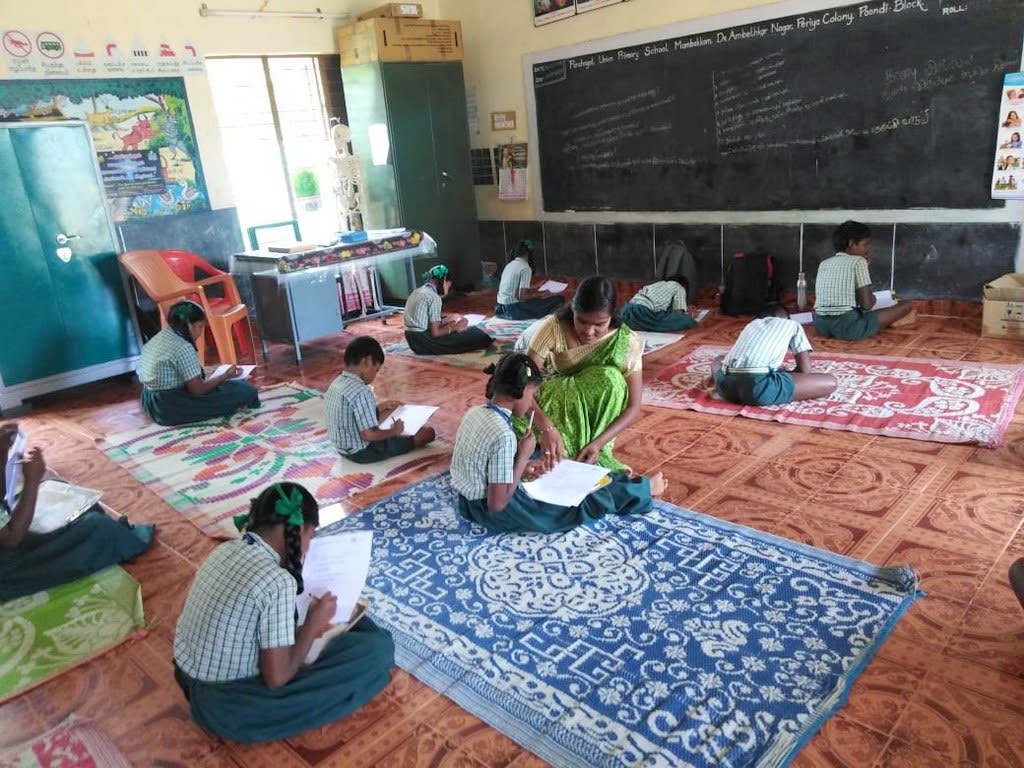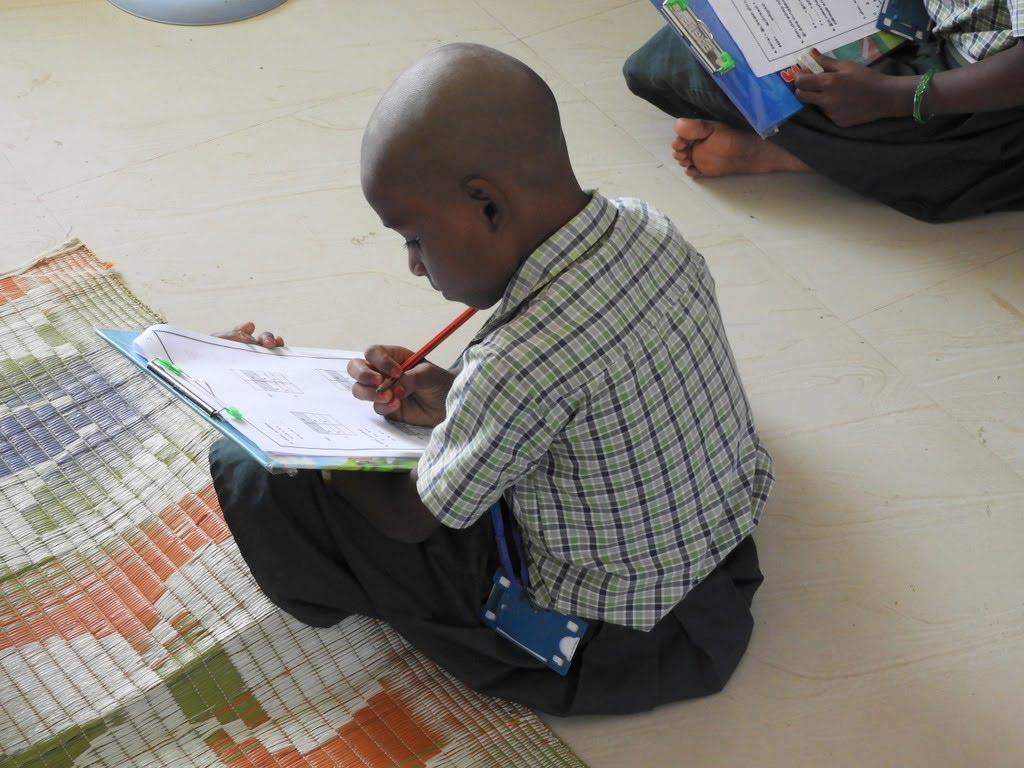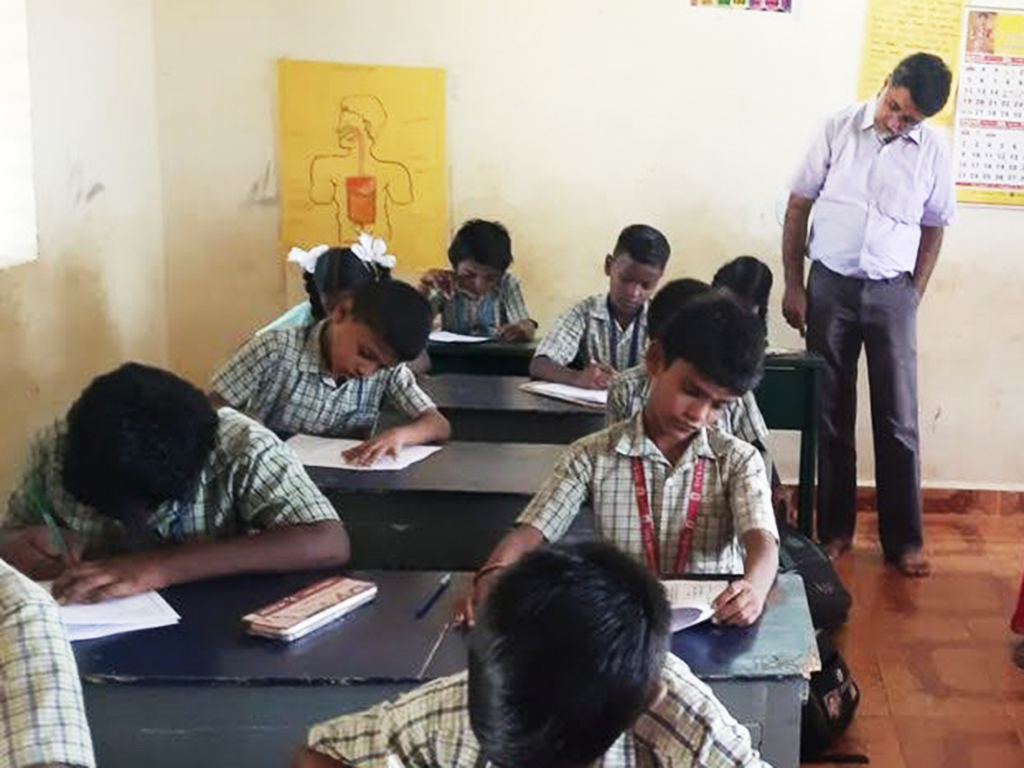Asha Chennai has been using technology to better education. There are many ways to use technology to improve education. We have chosen a few ways that we think will yield the most result. This website highlights our various initiatives in using technology to improve education.
Technology Aided Classroom
Asha Kanini is an application focused on helping teachers identify appropriate content for the particular lesson they are teaching and effectively use it to improve student learning. Asha Kanini is available on Windows and Android. It has been designed with the needs of remote rural schools in mind. It is network independent, platform independent, curriculum/language independent and supports any content that can be viewed on the specific device.
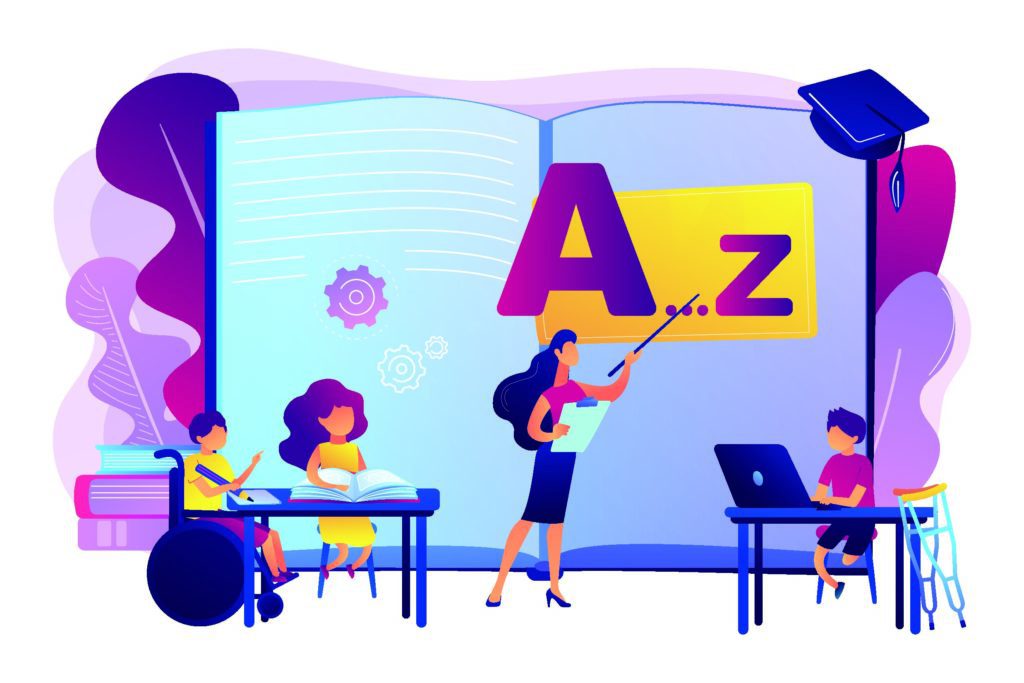
Asha Kanini includes a collection of content already available for free on the web and mapped them to the appropriate lessons for each class. A lot of content that is included was developed by private organizations and made available to the public for free. There are contents developed by Sarva Siksha Abhiyan (SSA) specifically to be used in Government Schools. The Government of Tamilnadu has created content including those published with the text books like Diksha. Asha has also created its own content that bridge any gaps and bring these contents together in the form of lesson plans. Asha has also created its own content that bridge any gaps and bring these contents together in the form of lesson plans and discrete activities. Asha Kanini was originally developed to help teachers teaching at Tamilnadu schools based on Samacheer Kalvi. It has since been made available for UP state board as well. After Corona, the contents have been mapped to the Foundational Literacy and Numeracy (FLN) textbooks as well. The content can easily be mapped to suit any curriculum or textbook as needed.
Learn MoreTeaching Computer Science
Asha Chennai has been teaching computer science to students in primary and middle schools in Tamil Nadu for the last 10+ years. There was no curriculum available for Computer Science in Tamil Nadu state board. We considered the CBSE curriculum and felt it was very outdated and proceeded in an unengaging manner.
We have developed a curriculum on our own. The curriculum covers both digital literacy (how to use a computer?) as well as computational thinking (programming computers to do various things). Our goal was that the curriculum should be implementable even in schools with very limited infrastructure. We still serve several schools where the only computer is the laptop that our teacher carries with her.

Computer Science is not something you learn with a pen and paper. Children need to actually do thing on a computer to learn. In our curriculum we lay emphasis on learning by doing. Like most subjects computer science is also best learnt intensively by the struggle to create something of your own. We devote the entire third term (Jan to April) to project work. Classes 4 and 5 develop a presentation while classes 6 to 8 develop a programming project with assistance from the teacher.
Asha has also started engaging with older children in High and Higher Secondary schools in various ways. Asha teachers teach basic digital literacy and programming to all students in these schools by 9th std and provide free advanced courses for them in our Rural Technology Centres . We are also training government teachers to teach our One year and Two year curriculum through our ACE program.
Learn More.











